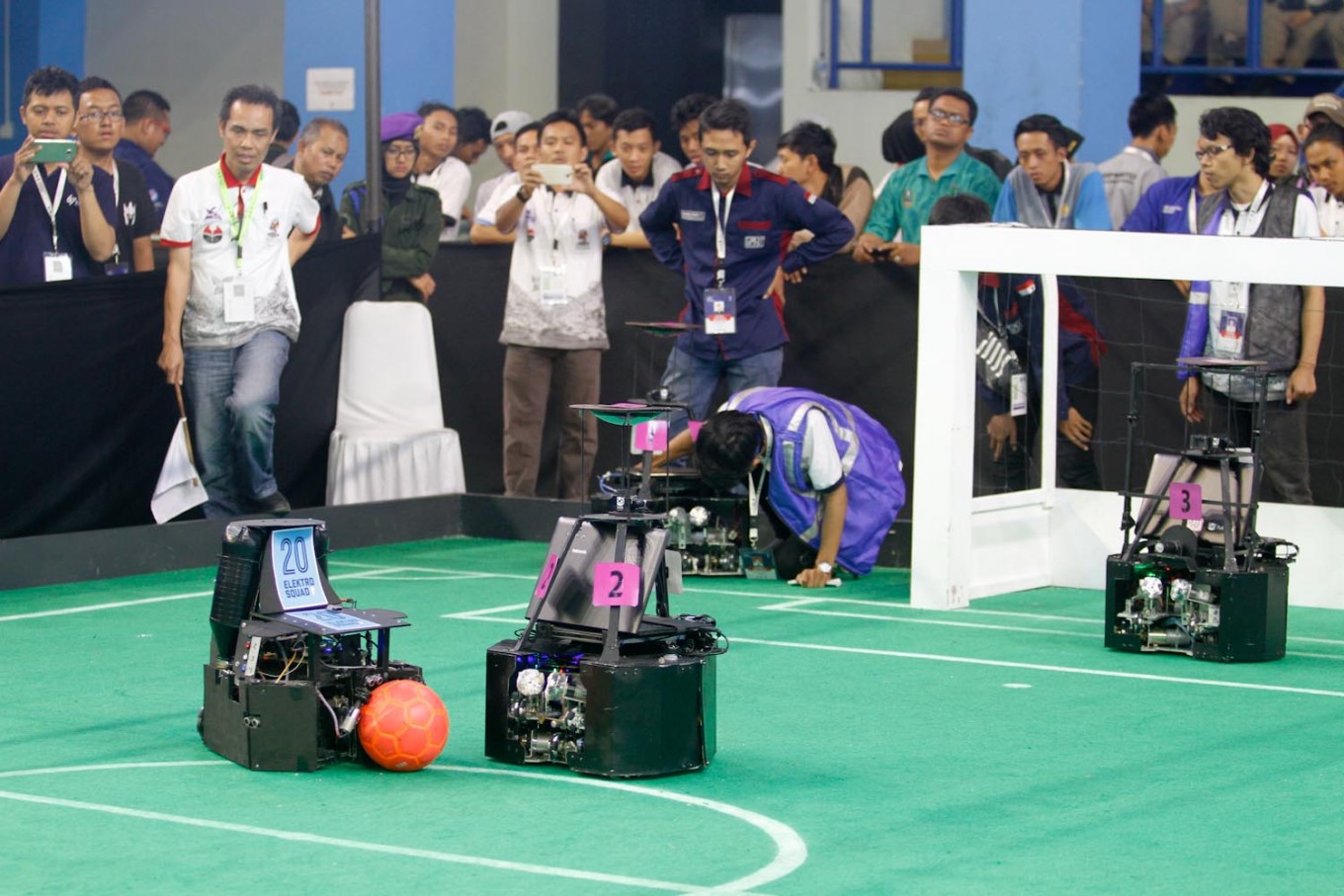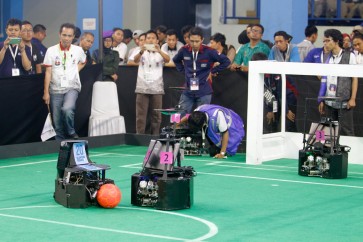Rise of the machines and digital policy
This is why industry 4.0’s robots may be worth a higher degree of anxiety. What kind of jobs can they replace and what does it mean for a country like Indonesia?
Change Size
 University students watch the two-day robot contest at the Indonesia University of Education (UPI) in Bandung. (JP/Arya Dipa)
University students watch the two-day robot contest at the Indonesia University of Education (UPI) in Bandung. (JP/Arya Dipa)
T
em>The Jakarta Post published an interesting article on the front page of its Sept. 27 edition, titled “Millions of jobs set to be lost.” In it we read a discussion regarding how disruptive innovation in banking and toll road operations have gradually begun to replace manual jobs with machines, which could cause job losses in Indonesia. We are in the fourth industrial revolution, what is the next thing we should be anxious about?
Robots are coming — whether we like it or not. The word robot conjures in the minds of many the vision of the Terminator, Mechagodzilla and the Transformers. But what is not part of most robot movies is the humane discussion regarding the extent that robots impact us still depends on macroeconomic conditions and a countries’ industrial policy.
Industrial robots are part of industry 4.0. They are “smart”— i.e. automatically controlled, reprogrammable and can learn. The more often it does something, the more data it gathers and the better it can perform.
This is why industry 4.0’s robots may be worth a higher degree of anxiety. What kind of jobs can they replace and what does it mean for a country like Indonesia?
Industrial robots do tasks that can be defined, codified and translated into software. This does not mean that industrial robots 4.0 automatically replace low-skilled and low-wage jobs. On the contrary, in the fourth industrial revolution, the most vulnerable type of jobs are likely to be those that are relatively well-paid.
And for this reason, the issues facing developing countries are more delicate than they are for countries with developed manufacturing capabilities. It is not just the question of job displacement, but also the overall likelihood for a successful transition in becoming a more industrialized country that can better afford to pay for its overall labor force.
Globally, data shows that the deployment of industrial robots has sharply increased, yet is only concentrated in a few industrialized countries. Around 80 percent of robots are deployed in countries such as the United States, Germany, Japan, China and South Korea.

















